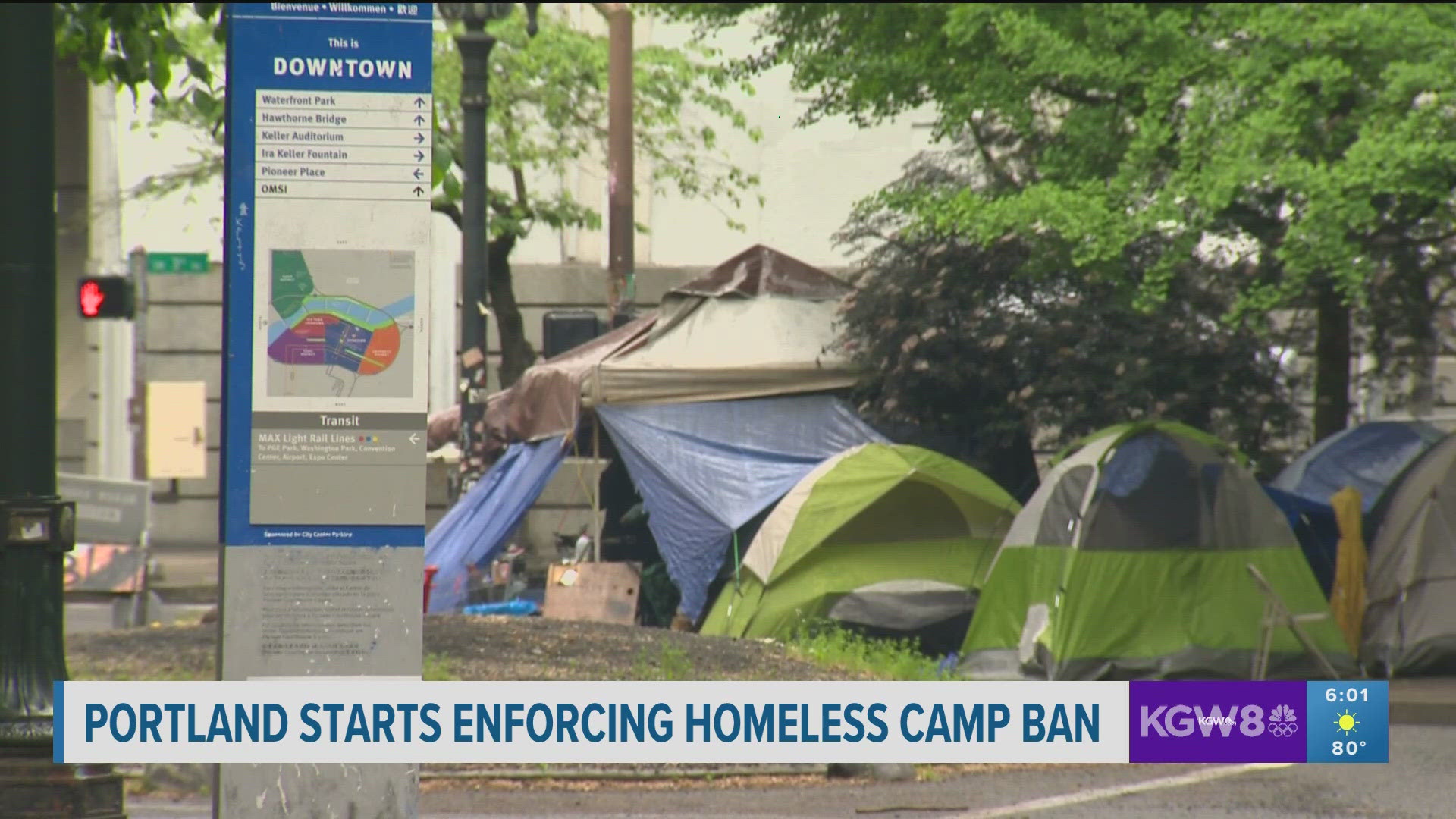PORTLAND, Ore. — Piles of woodchips and massive tree limbs line a residential street in Portland’s Lents neighborhood, and the radio blasts from a speaker. The man-made chaos is an attempt to deter homeless camps from setting up on Todd Littlefield's street. He’s the vice-chair of the neighborhood livability association and has been battling the crisis for years.
"We're constantly being terrorized," he said. "Just danger all around you."
On Monday morning, Portland launched its own tactic by enforcing a ban on homeless camping. Last week, in an exclusive interview with KGW, Mayor Ted Wheeler said he was confident about the new policy's potential community impact.
"Everybody knows what the rules are so, on July 1, we begin enforcing that rule," he said last week. "We're going to maintain the public right of ways and public safety. On the other hand, our constituents want us to offer humane alternatives to people living on the street."
Under the camping ban ordinance, a city outreach worker will first target homeless camps that are considered "high impact" or ones that create the greatest community health and safety risks and affect the work of city employees.
"I think it’s necessary," Littlefield said. "The direction, the message is absolutely what we need."
Shannon, who camps near Littlefield’s house along the I-205 bike path, said she wishes outreach workers would target a site like hers. The area was being cleared by Rapid Response Bio Clean crews Monday morning, she said, and no outreach workers were there.
"That's messed up," Shannon said. "Why can't someone like me and my fiancé get targeted that want help?"
The camping ban ordinance states that if shelter is available, the city outreach workers will offer it to certain people. If they refuse, that's when police could show up, if they are called by the city outreach team and if police resources allow. Police officers will either put violators in jail for a week, give them a $100 fine, or both.
Portland’s outreach team, which holds most of the decision-making power, was unavailable for an interview Monday.
However, the mayor's office had a different message Monday afternoon, saying in an email that jail time is not likely in most cases given limited resources. So instead of getting arrested, people who refuse shelter will be cited and given a court date.
"Those who violate the ordinance may either be cited in lieu of arrest and given documentation about where and when to present themselves at court or will be arrested, taken to the precinct, and provided with the same information," the mayor's office said in a statement.
These are penalties that don’t incentivize people like Rhonda and Reece, a young homeless couple living out of a tent in a residential neighborhood in Southeast Portland.
"If I can't go there with my dog, I'm going to say no, and I guess going to have to go to jail either way," Rhonda said of the offer of shelter.
"Wouldn’t be the first time," added Reece, speaking about the possibility of going to jail.
The mayor's office told KGW the city has access to about 860 shelter beds. It's unclear how many of them were available on Monday. A spokesperson for the mayor’s office said that number is constantly changing, but if someone is serious about shelter, they can "almost always accommodate them."
"There's no easy way to do that. It's hard and it's costly, and that is navigating people to whatever services they individually need to get off the streets," Wheeler said.
The mayor's office is expected to provide an overview of enforcement efforts at the end of next week.

